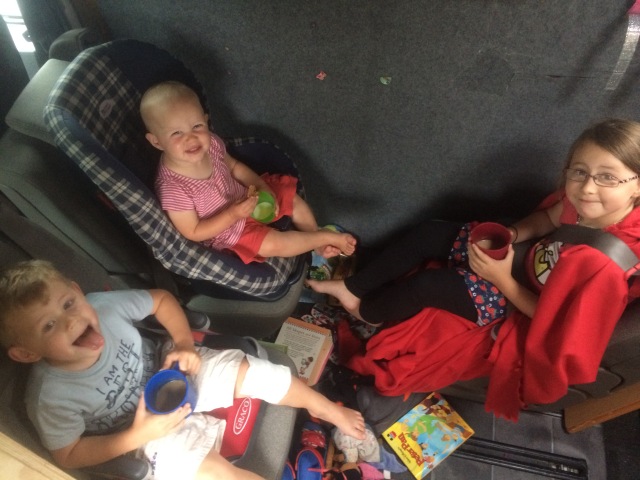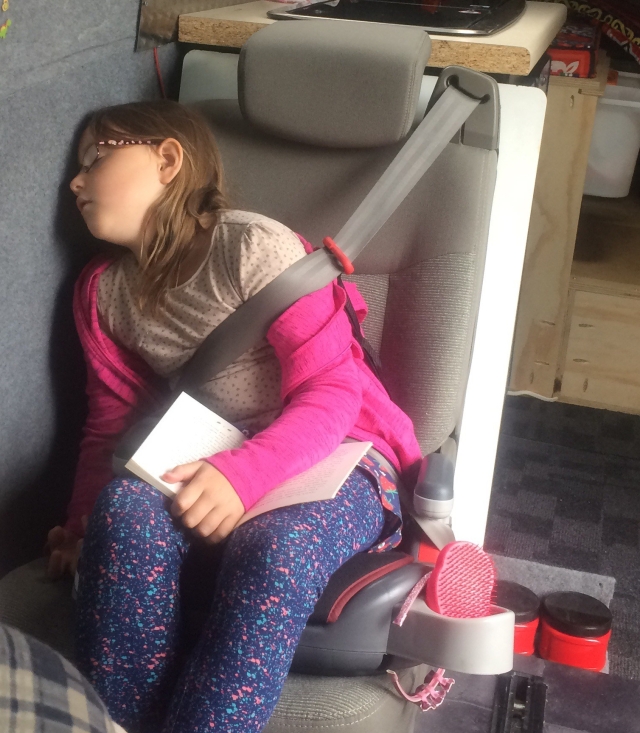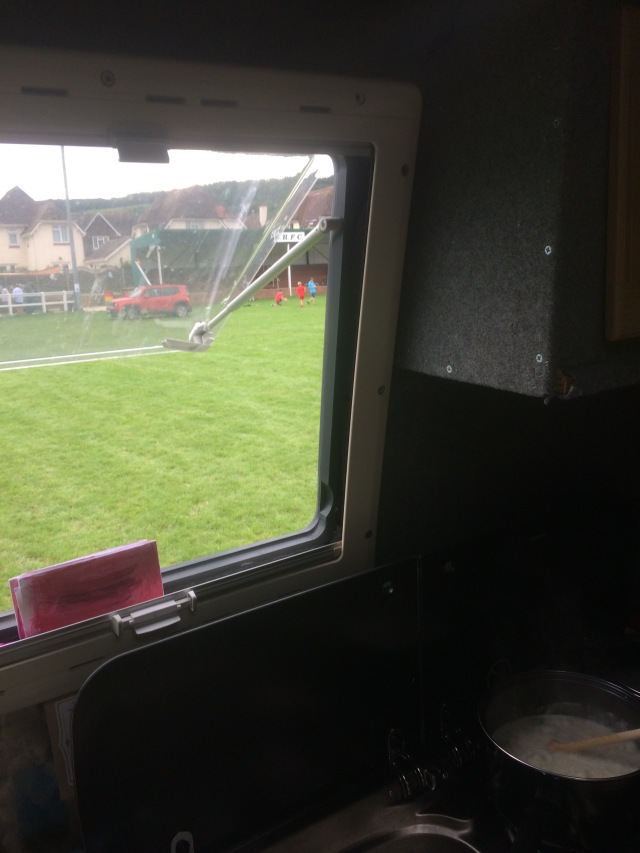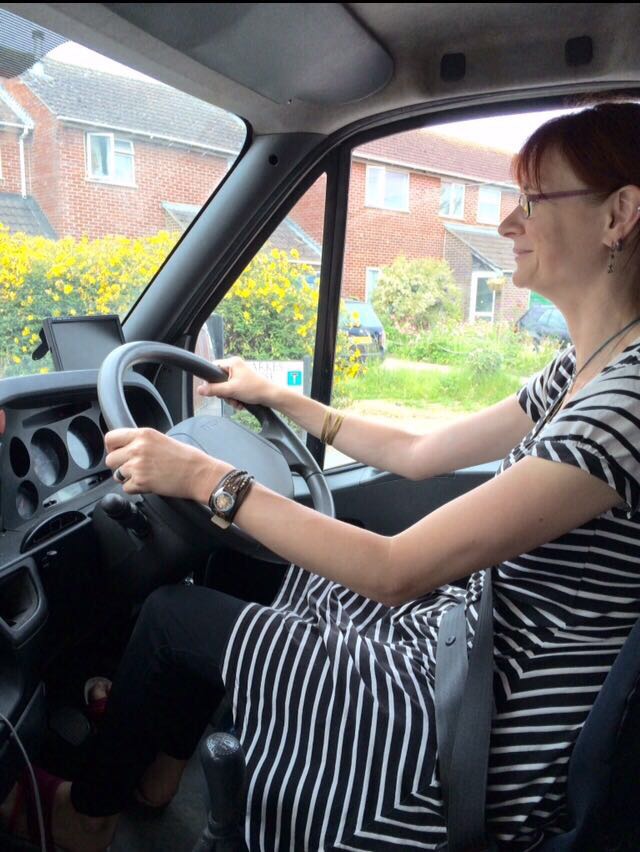For those of you who missed the saga of us converting and travelling in a campervan last summer, here is the article that I wrote about it for the Maadi Messenger.

Living the dream became our family catchphrase this summer in England. Several times a day, often ironically, my husband would say, “we’re living the dream”. It all stems from the fact that we spent six weeks of our summer holiday living in a campervan. You heard me right…our family of five living in a 7x2m space.
For you Americans – that’s an awful lot smaller than an RV (our British roads are just too small). Egyptians – you may be familiar with this rather unusual concept from the film Karakoon fi el Shera (كراون فى الشارع). South Africans/Australians – it was a much tamer experience than travelling through the wilds of your countries.
There was logic behind this seemingly crazy decision. We’ve realised over past years that we all struggle with a lack of ‘home’ and stability as we stay with family and friends over the summer months. Each week would be a new house with a new set of rules, a new set of things ‘not to touch’, a new bed. We found that the children suffered from not having their own space, a lack of continuity, experiencing uncertainty about where we were going next. It also has to be said that our boisterous, noisy family were also quite an imposition on even the most hospitable of hosts!
One huge bonus in our plan was the fact that my husband is quite the handyman and, having coordinated building a house, constructing a play area in the kids’ bedroom, and teaching Design & Technology for ten years, we were confident that he could transform our van into a functional space for our family. There were some quite specific requirements – a place that the older children could call their own, privacy at night-time, space for us when the children went to bed, plenty of storage, a kitchen and fridge, emergency toilet, and travelling seats for six people. It sounds like a long-shot but with two weeks of long working days and valued assistance from willing friends, our house on wheels was kitted out and ready to roll.
Every night for six weeks we slept in the van – either on the driveways of friends, campsites, or carparks that permitted such activity. I kept my expectations low as to how successful a project it would be, but we quickly made it our own and fell in love with the whole thing. Aside from the sense of home and consistency that it gave us, it also brought some unexpected benefits. It gave us a real sense of freedom – we were often able to change our plans and stay wherever we liked. If friends invited us out for dinner we could decide to stay and put the children to bed in the van whilst we continued to enjoy the evening with our hosts. If we were in a location that we liked (such as a day at the beach), we could look out a carpark that permitted camping. For those of you who know what it is like to spend the summer living out of suitcases, we were spared the ordeal of packing and unpacking wherever we went. Everything had a home in the van, everything was where we needed it to be. And I soon realised how much brain-power that freed up for me.
As any mother knows, we spend a large portion of our lives working out what we need to take for each child whenever we go out. This is especially challenging in the UK when each day might require you to alternate raincoats and wellingtons with sunhats and sunscreen…multiple times! But I was spared this palaver. Wherever we went, all our belongings went with us: clothes, toys, medicines. And our kitchen went with us – we could make a picnic wherever we were (one day this meant breakfast in the supermarket carpark); we could pull over at service stations and make a cuppa whilst the other did runs to the toilet with the kids.
Of course there were dramas and problems and moments where we didn’t think things would work out. One night, with the kids dressed in their pyjamas and falling asleep, we drove around in the dark looking for a place to pitch up. As we weaved down tiny, coastal lanes unsure of where we were headed, it didn’t seem like we were the embodiment of good parenting. There were times when we were cold and wet and bad-tempered. There were times when the kids were complaining that they kept banging their heads or scraping the knees as they negotiated the confined spaces. But there were moments of beauty and tranquillity too – breakfasts looking out to sea, cooking fresh eggs on a campsite, and kids running around in the fresh air.
We were encouraged this summer that when you have a problem it is OK to think outside the box in order to solve it. Last year we returned to Egypt tired and frustrated – a little less unified as a family than when we had left. This year we returned with memories of adventure, fun, working together…and of living the dream.
Published October 2017 in the Maadi Messenger






















